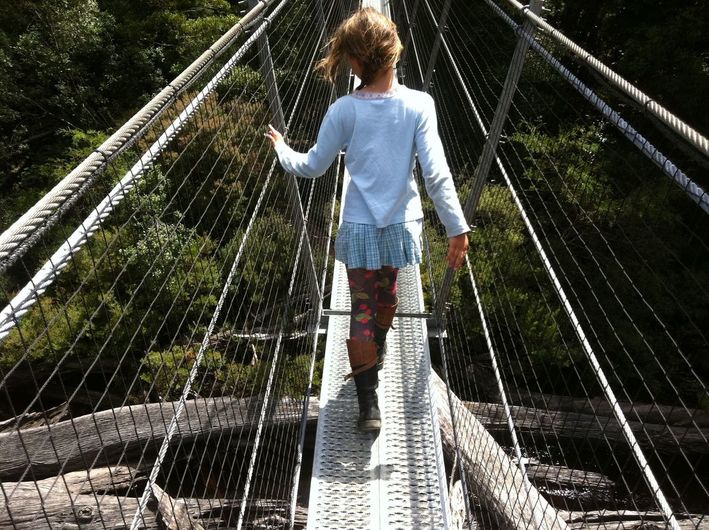 Your daughter's journey into womanhood is directly influenced by what she sees around her Your daughter's journey into womanhood is directly influenced by what she sees around her We cross the bridge into adulthood having watched how our parents treat and talk (or don’t talk) about their own bodies, relationships and needs, and this can go a long way to supporting our own positive sense of our body and self. Imagine you’re a baby getting your nappy changed. Your mum screws up her face and says ‘Stinky poo!’ You don’t understand the words yet but you hear the disapproving tone as she cleans up the ‘mess’ that you had enjoyed pushing out. Over time, you learn to hide your bodily pleasure. Imagine you’re a toddler, and your parents teach you to wash yourself ‘down there’ and never actually use the word vulva. Over time, you learn that talking about your sexual organs is not acceptable. Imagine you’re primary school age, and it’s normal for you to hear your mum complaining about her weight, wishing that her belly were smaller, comparing other people’s legs to hers and seeing her go on diets. Over time, you learn to compartmentalise and objectify your body. Imagine you’re a teenager, and your parents have only ever talked with you about sexuality once, when your body first started changing. They’ve never talked with you about the pleasures of intimacy with a partner. Over time, you learn that this is not something you learn about or discuss with your loved ones. Developing a healthy connection to your sexuality begins early in life and continues through your primary school years, even before puberty’s changes. Five-year-olds can learn about consent and internalise their rights and skills in giving a clear yes or clear no to how they are treated by others. I’ve heard that sexual predators prey on the less confident children. If a child doesn’t know the parts of their body or can’t speak up about their boundaries, it’s easier to keep them silent around something they sense is shameful. Criteria for emotional well-being … and sexual interest and satisfaction If a young person has low self-esteem, limited ability to self-soothe, poor coping skills and negative body image, they will struggle, according to Evelyn Resh, author of The Secret Lives of Teen Girls. We want our children to connect with themselves and their own needs, and enjoy intimate relationships. Resh’s criteria for this are: Reflection questions and/or strategies for parents from Secret Lives of Teen GirlsAround your own approach
Around conversation about bodies and sexuality Normalise sex and sexuality in conversations, both with your daughter and in your own life.
Around self-care She needs to see you live a life that includes sensual pleasure for you! How do you feel about your own body? Are you connected to your menstrual cycle and its associated changes in body, mood and energy?
Around rules Reflect on your experience as a teen and your parenting now. Are you repeating your mother’s style or have you adapted your rules to what’s appropriate for your daughter and these times?
Around Sexually Transmitted Infections (STIs)
The cost of hidden stress and why we need to speak up Let's be warriors AND magic-workers Let's be warriors AND magic-workers When the body says no: Exploring the stress-disease connection, Mate, Gabor, 2003, John Wiley & Sons, Inc, NJ. This book both shocked and inspired me. It may seem odd that I’m referencing a book called When the body says no: Exploring the stress-disease connection from my Daughters and Sexuality workshop, but I really believe we need to help our children to listen to their bodies, recognise what they need (and deserve to have), and then have the confidence to speak up for this, either in relationships or with health professionals. This book freaked me out a little, because it looks at all the ways that putting others before yourself, denying your own needs (and gut feeling, which can be ignored so often that you no longer recognise it), staying cheerful and repressing anger lead to long-term stress on your body, which can then emerge with scary effects on your auto-immune system. And parents beware: we learn these ‘skills’ from our family of origin. Maté’s seven As of healing - and how I believe they relate to your daughter's sexualityAcceptance The willingness to recognise and accept how things are, and the courage to permit negative thinking. Awareness We can learn to read symptoms not only as problems to be overcome but as messages to be heard. Anger Repression of anger is a major risk factor for disease, but anger differs from rage or hostility. Healthy anger is an empowerment, but repression and rage represent fear of the genuine experience of anger. Autonomy People suffer when their boundaries are blurred. Boundaries and autonomy are essential for health. Autonomy is the development of that internal centre of control. Attachment Connection is vital to healing. Behind our anger lies a deeply frustrated need for truly intimate contact. Healing both requires […] regaining the vulnerability that made us shut down emotionally in the first place. Assertion Assertion challenges the belief that we must somehow justify our existence. It is being, irrespective of action. Affirmation Health rests on 3 pillars: the body, the psyche and the spiritual connection. To ignore any one of them is to invite imbalance and dis-ease. Now, this is a mighty list of ideas, and I'm not saying that you're doomed if you're not perfectly well-adjusted. Believe me, I have to put my hand up for plenty of mistakes and bad habits in how I live and relate to others. All we can do is keep building our awareness and compassion, for ourselves as much as for those around us. But if you’re true to yourself, speaking up for what you like and don’t like, you’re much more likely to have friendships, relationships and sexual experiences that are mutually pleasurable, fun and nurturing for you. Which means that you can live sustainably and well, doing good and caring for our world. And I don't know about you, but that's all I'm after. World peace and a great life for everyone. References I mention in my Daughters and Sexuality workshopHere’s a list with some overview of what each reference is about. If you recall one that I mentioned that isn’t here, please ask me! I have a resource booklet that includes reviews, resources and quotes from them, which you can email me to purchase a copy for $15 plus postage. : )
TED Talks Listening to shame and The power of vulnerability by Brene Brown. Her work is powerful. If you haven’t seen these or read any of her books, please do! A Blessing not a Curse: A Mother daughter guide to the transition from girl to woman, Bennett, Jane A great guide, with stories, practical tips and great cultural stories, too. The Secret Lives of Teen Girls: What your Mother Wouldn't Talk About but your Daughter Needs to Know, Resh, Evelyn 2009, Hay House Inc, California, USA. This was the book that inspired me to first present this workshop on daughters and sexuality. I highly recommend it. Queen Bees and Wannabes Wiseman, Rosalind. Really readable, insightful and practical, including examples of what to say to your daughter in various tricky friendship situations, looking also at pressures of body image and expectations in teen relationships. Eye-opening and helpful. Things Girls Need from their Fathers An article from the Huffington Post, posted 06/18/2013. This is really great for all parents to read, and makes infinite sense. As soon as you have a baby is a great time to read this! Linked to a similar article for what is needed from mothers. Talk Soon. Talk Often. A guide for parents talking to their kids about sex. Free downloadable booklet from Government of Western Australia Departent of Health. A great guide for what is appropriate to say when, with examples. Nice layout with lovely pics, too! When can teenagers have a partner sleep over? Article by Maddy Silver, Sydney Morning Herald 17/3/14. Really great food for thought. Compares the Netherlands and the USA; in the former case, with parents more open and accepting of teen sexual relationships, there’s less teen pregnancy. Puberty Girl Movsessian, Shushann 2004 Allen and Unwin, Sydney. This is for mature pre-teens and teens – really friendly language that tells you the straight-up facts in a non-medical way. TED Talk: Your body language may shape who you are, Cuddy, Amy (who also researched and wrote the great book called Presence: Bringing your boldest self to your biggest challenges, 2016 Orion, London. Great research on power poses and how you can develop greater self-confidence.
1 Comment
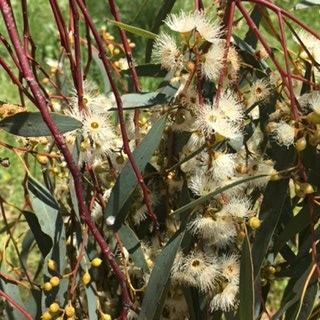 d like you to find this message moving, valuable, inspiring...
There, I've said it. Even though it makes me squirm, I have to admit the second and third points. I've pledged to share more vulnerability. : )Allowing myself to show insecurities and weaknesses goes against my instinct to always show you my best side. But each time I read a book, do a workshop or listen to a thought-provoking TEDTalk, I get a similar message; be your authentic self. Including the parts where you stuff up, avoid things or have 'unsociable' responses. I was listening to Brene Brown's talk on the Power of Vulnerability again the other day after a friend had told me she had rewatched it. The crux of it comes down to the fact that there are happy, wholehearted people, and people who aren't. And those who are happy and wholehearted are that way because they feel loved. And the reason that they feel loved is because they believe they are worthy of being loved. How do you convince yourself that you are worthy? Live it? The theme of all my work is caring for yourself. So that then you can connect and care for yourself, your community and your environment. I choose to work with young people and their families. It's an ongoing learning for me, and I can only hope to help others on their journey, too. 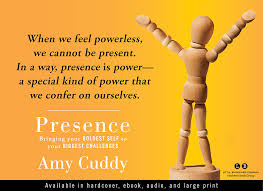 I read Amy Cuddy's Presence: Bringing your boldest self to your biggest challenges. Her message was 'fake it until you become it'. That you don't need to learn a certain way of behaving/speaking; it's being true to yourself that allows others to connect with you. She wrote it after she did a TED Talk on Your body language shapes who you are. So I've been using her power poses in our Puberty and Wellbeing program at Thornbury Primary School, getting the students to practice their Wonderwoman or Superman pose, because it releases confidence-boosting testoserone and reduces your stress hormone (cortisol), which allows you to simply be more of who you are, trusting that others will value you for you who are. In short, so that you will feel worthy of being loved. So there's my little theme for this message: look after yourself by admitting your mistakes to others. And reap the benefits of being vulnerable and kind to yourself! Speaking of benefits, I came across a lovely little article on Forest Bathing: how just being amongst trees is now scientifically proven to improve your health. Heh-heh, good work, scientists. You've caught on.
So welcome to summer. May it be a time of watching your grains of self-care ripen and bear fruit. Warmly Janoel xo Step into Womanhood Mother Daughter Retreat in Bali For mothers and 11-13 year old girls I've just uploaded some video testimonials about the retreat - yay! Join us to create an inspiring adventure with your daughter... July 2017 retreat now booked out. Taking expressions of interest for July 2018. Venue: Melati Cottages, Ubud, Bali Enquire/express interest: Janoel Ph: 0408 664 919 or email: [email protected] See our website for more: www.stepintowomanhood.com If we could just change the world with good intentions... The change in season is here; I stepped out yesterday morning and noticed that plum blossoms have burst their delicate beauty upon our garden. A little like daughters, really - we can nurture and anticipate, but they choose their own timing. But just like trees in a garden or a forest, young people are affected by what happens around them. What people say, or don't say. What they see often, and what they never see. I'm no perfect Earth Mother - I love a good movie as much as anyone. I like losing myself in a story, or being taken on an entertaining learning journey. My kids love movies, too. And any other media they're allowed, just like their friends. My work is based on getting young people and women to know, love and take care of their body and themselves - but when we're constantly exposed to an 'ideal' female body look, how can we get comfortable in our own skin? I've had my own journey with accepting my body; at 24 I was trapped in a housefire and had 65% of my body receive 'full thickness burns' as the medical staff say. For the first 50 days it was touch and go whether I would live.Thankfully, though, after 2 months in intensive care and half a year in hospital all told, I got out of the wheelchair to live a full and glorious life. My arms, legs, feet, back and hands are all scarred. I had been a feminist since my early teens, staunchly defending my right to be known as a Ms, and snorting with derision at men who thought they had the right to rate my looks or body, hotly debating women's rights. I remember trying dieting around Year 10, but I just couldn't keep up the effort. I liked food too much! Still, the niggling voice wanting to be 'beautiful' persisted. My earliest heroes - Jane Eyre and Elizabeth Bennett in Pride & Prej, were feisty and spoke their own mind. I don't recall them being featured as beautiful. Books gave me one perspective, but every movie or TV show I saw, every billboard or ad, showed women with flawless skin and a relentlessly similar body type. Well, burns, nearly dying and being fed through the nose are a cheap way to lose weight. I dropped around 15kg and had skinny legs for the one and only time in my life. It wasn't a source of satisfaction, though; I was itching to get to uni, back to my friends and dancing - back to life. I had lovers who cherished me and my body, and I fell in love with a wonderful man who is now my husband, who said I had warrior goddess scars. I kept my body covered from the sun to avoid skin cancer, but there was no reason for long sleeves on a hot night other than hiding my scars. I didn't realize how I was holding myself back until one hot New Year's Eve a few years after the fire, I realized I could dance at a humid Queensland music festival in a singlet top just like anyone else - and no-one cared if I had scars. They were doing their own thing. So I got on with doing mine. And I realized I can love my body, just the way it is. Simple epiphany. A few days ago I saw Taryn Brumfitt's movie Embrace, and I would like EVERYONE I know to see it. It started with her challenging the status quo - she posted an 'After' shot where she's happy with her generous post-3-babies body. It went viral; she had over 2 million views, and thousands of comments. you So many women wrote things along the lines of 'I think my body's disgusting... Please help me.'
So she set out to find out why so many women hate their bodies and what we can do about it. She did research, and went travelling, and over the course of her journey and the movie, we meet many different characters, often leaving a powerful effect. Some that stood out for me:
If you prefer websites to movies, Taryn Brumfitt has created the Body Image Movement, and on it are articles like:
Warmly Janoel I'm now taking bookings: A Celebration Day for Girls 1.5 day workshop for 10-12 year old girls and their mother/female carer Step into Womanhood Mother Daughter Bali Retreat July 2017 for 11-13 year old girls and their mother/female carer. 2 places already booked for 2017 - it's selling out earlier each year! Fathers Celebrating Daughters workshop with Janoel Liddy for fathers of tween and teen girls to prepare for a positive transition to puberty and growing up. Enquiries/Bookings: Janoel Liddy on ph: 0408 664 919 or email: [email protected]  Do we have to talk about it? Eurgh. Many of us feel by instinct there's something wrong with pornography. What you may not have considered is how it can negatively affect young people's culture and development; their brains and self-image, and later, their expectations of intimate relationships as adults. Let's prepare against it early. What do you say to them? In Celebration Day workshops, this isn't a topic that comes up with young girls. But in anonymous question time in our school puberty and well-being program for grade 5 and 6, we usually get something about pornography. What is it? Is it bad for you to watch porn? With a class, we give short, simple answers: Pornography is photos or videos of people having sex for other people to look at. It's fake, and not like real life. It's made for adults, not young people. Sometimes I share a story that I heard about a dad who learned his early teenage son had been watching pornography. The father sat down with him, and didn't tell him off, just had a chat. He advised his son that if he got into watching this stuff, it would twist his view of how two people give each other pleasure. It could jeopardize his chances of having a great relationship with a real person. The young man was so impressed by what his dad told him that he went and spoke to his mates about not using it, too. Do I have to? Yes, you do. If your child or teen has access to the internet, it's probable that they'll stumble onto sexually explicit material, view it with a friend, or just google 'naked woman/man' being curious. Or someone in the school yard will tell them about it. Btw, I always use the whole word, and don't normalise it with the casual 'porn'. So when do I have to talk about it? Laying the groundwork will serve you well. The AusVELS curriculum provides resources for teachers at Foundation (prep) Level to talk about names of body parts including vulva, penis, breast and buttocks (bottom). By Level 3 Vic government resources include further detail about our sexual organs and how we create new life. It's advisable to chat about these things at home, too. Click here to request tips on how to do this. So by grade 4 or 5, if your son or daughter understands how our sexual organs work, and that for adults who feel safe with each other it can be pleasurable, as they respond to touch, sights or thoughts, then they'll be able to understand that some people - not all - like to look at 'sexy' pictures or videos. You can prepare against whoopsies In case they ever open a link by mistake, you can say something like, "Businesses make pictures or videos of naked women and men to sell to other people, and sometimes it just pops up on a computer screen. If you see something with naked people kissing or touching other people, it might be a shock. Just leave it and come and get me; it's not meant for children to see."
Here are two rather shocking statistics from Janet McGeever's TEDTalk It's called making love, isn't it? In Australia, an estimated
Both girls and boys need to learn about healthy, respectful sexuality from adults they respect and trust. What do we as adults need to know about today's pornography? The truth is, I have been agonising over what and how much to tell you here. Some time ago, I was asked to prepare a short presentation on the effects of pornography on young people, and it opened a Pandora's box for me. Reading and researching about it is a sobering and shocking activity. in my workshop Fathers Celebrating Daughters, I provide dads with a booklet that includes info from some of the resources I've accessed. Really, though, dealing with pornography and its effects for a parent in today's world merits a workshop in itself. Would you be interested? Brave enough to attend? Pornography in the 1980s was pictures of semi-naked or naked people, or videos of people having sex. Now, that type is considered 'softcore porn', and we see this style in everyday advertising and TV shows. 'Hardcore porn' is graphic and the majority of it features acts of aggression which are nearly all directed towards females. What I've learned about pornography and young people Young people who use pornography to learn about bodies and sex create unrealistic expectations for what male and female bodies should look like. This distorts their own body image in the process. They also form an impression of how people should act when having sex. Video images burn into our memory, and what we are exposed to at a young age influences our sexual tastes and fantasies. It is also very easy to become addicted, and excessive use directly affects the user's self-esteem, perception of and respect for women and the ability to relate and function in a relationship. Norman Doidge explains in The brain that changes itself how the addict's mind becomes wired to anticipation of the high, without any long-lasting relief, leading to the need for another hit, just like gambling or heroin. But my child is so young... I know the idea of your own child engaging in intimacy with a partner may seem so remote, and the likelihood of them wanting to watch pornography so unlikely that you feel it couldn't affect them. But the reality is that pornification has intensified incredibly in the world around us; our young people are affected by seeing advertising, music videos, celebrities and internet use (about 30% of all internet downloads are pornography). Even if they aren't exposed to any of this, they can't help being in contact with other young people and adults who are. It's not always easy to see or articulate pornification of our world. Like being a frog in a pot that becomes used to the rising temperature, we forget to react to sexualised images like the big breasts, flowing hair and tiny waists of modern Disney characters, as explained in the Stop Porn Culture presentation It's easy out here for a pimp. We can do something about this. We can look after and love our own bodies, stay aware of the age-appropriate issues and inform and inspire our daughters and sons to do the same. Here's to a healthy world replete with fulfilling relationships! Warmly Janoel Do you listen to your body?
If you get to a yoga class or the gym a couple of times a week, eat as well as you can and don’t often punish your body, why aren’t you feeling vibrant? Women are really good at getting the job done and looking after everyone else - and everyone else’s projects. Many of us are ok at self-maintenance, too. But we need more. The trouble is, we often see other people’s needs as more urgent than our own. Don't pass on martyr practices If you want your daughter to avoid the self-sacrifice trap, you need to show her the way. As girls, very few of us were taught or given great role models of self-care, let alone inspired to listen to our bodies as a top priority. Every week, every day, your body and your menstrual cycle are telling you something. Here's an example of what you can do to listen. 1. Take a few minutes each day Jot down what you noticed about yourself that day. I do it just after I’ve got into bed. A few words or symbols for things like:
2. Find the gold You’ll start to notice patterns, and within a couple of months, you can begin to anticipate how you’re likely to be feeling. This is gold. 3. Use the gold Plan around what you can anticipate. It's great to recognise your needs, but that's just one part. You can only make huge and positive shifts in your health and well-being when you consider it urgent to take action on nurturing yourself. Here's what you can do For example, after charting your cycle, you'll know you’re close to a low energy period (pardon the pun), and you can do something about it. Instead of becoming fed up and overworked at a time when you’re feeling extra sensitive and low in energy, you can neatly sidestep that sense of overwhelm by rearranging your schedule or allowing shortcuts for yourself before you reach the end of your tether. Time to shine There are other advantages, too. For women who want to
Even if a woman never wants to become a parent, it’s handy to know when you are ovulating (releasing an egg that could be fertilised to make a baby). It’s a great time to plan for parties and being productive, as our body’s hormones are telling us that now is the time to get out there and shine! Self-care has extended benefits If you can get into this practice of self-care and share it with your daughter, it will benefit both of you. And those who live and work with you. Our own well-being isn’t just important; it’s an urgent priority. Please have a play in our new look website or get in touch if you'd like to know more. Have a wonderful and fulfilling day! Warmly Janoel Now taking bookings for 2016: A Celebration Day for Girls 1.5 day workshop for 10-12 year old girls and their mother/female carer Step into Womanhood Mother Daughter Bali Retreat July 2016 for 11-13 year old girls and their mother/female carer. Coming up soon: Fathers Celebrating Daughters workshop with Janoel Liddy for fathers of tween and teen girls to prepare for a positive transition to puberty and growing up. Monday 23 November 2015 7.00 pm – 9.00 pm Venue: 108 Cramer St (Cnr Gilbert Road), Preston West Cost: $35 For the workshop and resource materials Enquiries/Bookings: Janoel Liddy on ph: 0408 664 919 or email: [email protected]  Nearly every birthday and Christmas, I fret over what to give my children. Will they like it? Will they use it? I try to recall what my parents did for me at the same age. It’s so long ago I can’t bring to mind specific examples, just a general – vibe of the thing. My expectations, my parents’ concern, pride and love. It's similar to talking with our sons and daughters about their body and sexuality, really. Girls can be told about the menstrual cycle and reproductive functions in a matter of minutes, but what matters a lot more is what they witness of the women in their life and the attitudes they have to their own body. We can give them attitude Body image, self-esteem, sensuality, sexuality, self-pleasure, self-respect, self-care – we want our girls to have all these as they mature. We don’t want them growing up too early; being sucked into obsession about their looks, or worse: self-hatred; eating disorders; depression or anxiety. So let’s honour the almighty power of the mother figure (pardon the pun). It takes a while One of the key findings that became clear from the research project I volunteered with last year was that a woman’s understanding of her body comes from many experiences and conversations over years. Not just one talk or one school period (ok, no more puns). So mothers/carers here’s the thing: if you want your daughter to be friends with her body and her cycle, she needs to see and hear about it many times over. A woman has 35 to 40 years to dance with her cycle, and a lifetime of being in her own skin. If you want your daughter to become a woman who is comfortable with her body, clear on what she needs for self-care and (yes, I’ll say it) has respectful and satisfying sexual relationships with exquisite intimacy, you are in the best position to help her develop that gift of healthy self-esteem. Get in there In all the programs I do, we always involve the parents of the young people we work with. We educators can be inspiring and open up conversations as we work with them for a day or a week or a series of sessions, but you are with them for a lifetime. In November I’m offering another Celebration Day for Girls, to prepare and welcome 10 to 12 year old girls and their mums/carers to puberty’s changes and getting their period. We start with a mothers-only evening session. We go through the contents of the day program with the girls and reflect on what it was like for us when we were that age. I love these nights, because the women who choose to enrol their girls in a Celebration Day are motivated, interesting people. They want to make a positive difference to their daughter’s experience of puberty and womanhood, and are willing to try something new (or follow up on that great workshop they heard about from other women!). Everyone's approach is different Some mums are confident talking about bodies and periods, and many mums aren’t. Some girls are curious and ask their mum about it, others say they are not ready, occasionally some are even hostile. Before one of our workshops, often girls will be giggly and say with a roll of their eyes that their mum is making them do the day. Most girls, though, really really want to know. And the stats show that girls who feel positive about getting their period tend to have a better experience, both physically and emotionally. Down the track after a Celebration Day, women often tell me that while they already had a good relationship with their daughter, sharing the day together simply opened up new conversations and ways of being together. This is deeply satisfying for me to hear; it’s a rich and rewarding experience to support girls and women on their journey. Be kind to yourself Just about all of us do a lot for others. Taking care of yourself, though, is a really important way for you to provide for those around you. Give yourself time out, even if it's just a few minutes. Be positive about your body. Your daughter will be a witness to your random acts of self-kindness. If she learns to look after herself, your gift will be long-lasting. As I said, it’s not the gift-wrapped present that she’ll remember, it’s the vibe of the thing that counts. If you’ve already shared the day with your daughter, please forward this to parents of girls in your community. The greatest compliment you can offer a facilitator whose workshop you have enjoyed is positive word of mouth. 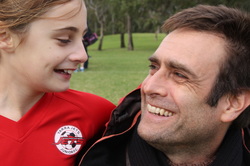 A girl’s father is the most influential man she will ever have in her whole life. His parenting directly affects her experience of puberty, her menstrual cycle and sexuality. How much a dad says or doesn’t say, how much time and attention he shares with her, his attitude to her body, achievements, relationships – inform her view of all men. In her life, whether straight or gay, there will be so many men in many different roles: friends, lovers, co-parents, clients, bosses, subordinates – all perceived with filters formed by who her father was for her as she grew up. Yes, there’s therapy, and life learning as an adult… But gee it’s great if a father takes time to consciously consider the impact he has on his young daughter as she grows. I offer an evening for dads called Fathers Celebrating Daughters, where we talk about issues they face as their daughters line up for or are in the roller coaster of puberty. Below are a few of the things that we talk about. Which ones did your dad fall into or sidestep? 7 Common Dad Traps 1. Limiting physical affection Dads often feel uncomfortable when their daughter’s body begins to change; they can be concerned that they look like a predator if someone misinterprets their physical affection with their daughter, so they begin to keep their girls at arms’ length. Dads need to stop worrying about this, or a girl gets the message that developing a womanly body is not something worthy of affection. Fathers, please keep up the hugs. 2. Taking a back seat and slackening the lines of communication During puberty and adolescence, girls naturally become more independent. Fathers often think that it’s best for them to leave the emotionally charged situations to mothers; that girls aren’t that interested in doing stuff with dad anymore, seeing as social media and their friends are so important; and that there’s no need to demand regular time with their girl who is fast becoming a young woman. In fact, girls shine when their dad gives them a compliment. And establishing a regular activity together means there’s always space to chat, where something that’s been bothering her can casually come up. Dads can be the ones to create the safe boundaries. In centuries past, it meant ordering the drawbridge to be taken up. These days, it might be creating a family contract around the use of screens. Rosalind Wiseman has a great example of one in Queen Bees and Wannabes (Email me if you'd like to see her version).[1] 3. Avoiding talk about bodies or sex Do you know a dad who avoids using the actual names for his daughter’s body parts? Girls need to know that they have a vulva, not a ‘down there’. From toddler to pre-pubescent to teenager, if your father is avoiding talk about your body and sexual behaviour, you get the message that you are not to openly discuss your body or its needs, and that becoming a sexual being is not something to be proud of. I love what Joyce McFadden says about dads who avoid body/sex talk: Parents don't wince over things they're proud of or happy about in their kids, and even our youngest daughters understand this. […] So, when you reveal your discomfort with your daughter's sexuality, you're unintentionally teaching her it's either something to be afraid of or something to be disdained. You'll also be directly or indirectly teaching her you don't want to be involved in knowing that part of her, and that will probably create distance in your relationship. None of this will enhance her self-esteem or her ability to believe you love her unconditionally. 4. Cracking jokes about her changing body and/or commenting on women’s bodies Dad Jokes are a time-honoured institution. But some things need to be off-limits. A quick one-liner about a body part or a crush can burn into a girl’s memory for years, if not a lifetime. It is such a sensitive time as they grow taller, wider, curvier during puberty. Many women have a painful story from a thoughtless comment made about their body. “I didn’t wear T-Shirts for years after that,” I remember one woman telling me. Here are three statements on girls and eating disorders from Nigel Latta’s Fathers Raising Daughters that I find telling:
Yes, tell her she’s beautiful. But letting her know that you value is who she is, and what she does, rather than assessing and praising her physical features gives her a healthy set of priorities. 5. Leaving talk about periods to the women Some dads ignore the fact that their daughter has a period, which can send the message that it is an unspeakable subject. Easy for girls to translate ‘not to be spoken of’ into ‘not to be proud or open about’. Last year I volunteered as a facilitator in the Waratah Project with the Victorian Women’s Trust. The first of its kind in the world, we listened to groups of women talk about their experience of menstruation and menopause. Every now and then, we would hear someone report that their dad congratulated them when they first got their period. They would often say this with a satisfied smile, even if they added that they were embarrassed by it at the time. And do you know, these were often women who had a positive approach to their menstrual cycle ever since. 6. Missing the teachable moments The more you talk about important issues, the better. Dads often think that once they’ve done ‘the talk’, their job is done (or they avoid it altogether and hand the whole thing over to Mum). Learning about your body is a process that takes years and hundreds of conversations. If the majority of them are with great role models, a girl can get the right messages:
7. Fixing her problems for her It’s really admirable that a dad wants to fix his daughter’s problems for her. The problem with that is that she doesn’t learn to fix them herself. Help her to find a way, and only step in if she’s really over her head. And rather than seething, refusing to talk about it or cracking it, at some point it’s great to say thanks for letting you know, and that together you’ll work out how to resolve things. And while we’re talking about mistakes, it’s helpful if girls get to hear that sometimes their dad is vulnerable too. Daughters work extra hard to show their fathers that they’re doing well, that everything is fine and under control, because they don’t want to disappoint. If dads show their weaknesses, it’s easier for their girls to come to them about their own problems. There are so many opinions out there on dads and daughters… What was the best thing about the way your dad parented you? I’d love to hear. And feel free to contact me if you'd like a father you know to come along to one of our Fathers Celebrating Daughters evenings, or take part in A Celebration Day with your 10-12 year old daughter. Warm blessings and billowing blossom to you Janoel Email: [email protected] Ph: 0408 664 919 [1] Wiseman, Rosalind Queen Bees and Wannabes: Helping your Daughter Survive Cliques, Gossip, Boyfriends, and the New Realities of Girl World, Three Rivers Press, NY, 2009, 2nd ed [2] Latta, Nigel Fathers Raising Daughters, HarperCollins, Auckland 2010, p. 195 Boys to Men Although this article is about boys becoming men, it directly affects the girls and women they live, study and work with. And Janoel and her son and husband feature in it!
Published in The Age, Sydney Morning Herald and The Courier. Article: How boys become men in a world of online porn, social media and sexts.  Regular rituals of self care are a vital gift to both you and those around you. I read once that ritual is routine made sacred, and it makes so much sense. Taking time out of your day, even if only for a matter of minutes, for your own ritual brings you back into your self-awareness, clears your head and gives you precious space to gain perspective. One of my nightly rituals is simply recording in my moon diary how I felt that day; my mood, energy levels and any menstrual or body symptoms I've experienced. I can see patterns, giving me a reality check if I need one. It's so easy to over-commit and overdo things otherwise! Each morning before breakfast, I walk our dog by the creek. As I walk over the hill, I sing a chant in my head: 'As the sun rises, I face the open sky. And as the sun sets on my life, I'm not afraid to die.' It charges and cleanses me. We sang this together as a community after my dear friend Mirabai had passed away, so it has a poignant sense of loving life for me. I run mother-daughter coming of age retreats in Bali, as well as Celebration Day for Girls workshops for young girls and their mothers, to welcome and prepare them for the transition to menstruation and womanhood. These are beautiful learning experiences for the girls and their mothers, where we celebrate loving ourselves and valuing our own divine feminine. It’s wonderful to have an adventure, special trip or workshop on the divine feminine, but your daily life is where the ongoing magic happens. In our programs, we share rituals of self-care that all of us can do, like taking time out to write or draw in your journal, rest, withdraw - when you're bleeding or simply whenever your body tells you it's time." I’m a strong believer in the power of your own regular women's circle. Anyone can start one, and the rewards are so rich for a simple matter of committing time and following some basic ground rules for yourself and your sisters in circle. Earlier this year, I ran a workshop on creating your own women's circle at the Seven Sisters Festival in Mt Martha with my friend and colleague Jac Torres-Gomez. We had over-full sessions, with more than a hundred sisters joining us; women are hungry for this. It’s time for us to create what we need in our lives! Women’s circles are a safe and sacred place where you can feel powerful, inspired, recharged, challenged, reassured... If you set it up properly, it can offer profound life-changing benefits. I’ve been meeting monthly on the dark moon for over 13 years now, and we plan to continue until we’re little old luscious women. Taking time out to share with others helps us to find the divine in our life. Ritual for you is when you consciously take time out to honour yourself. I love my regular yoga class, where, without fail, I walk away blissful. Moving meditation, in the form of a 5Rhythms dance class, is a precious part of my practice, because it feeds me, deeply. Maybe yoga and dance aren’t your thing like they are mine. Daily meditation is a gift you can give to yourself free of charge. Taking a moment to bless your food, even if silently as you pause before the first mouthful, creates a sacred moment. How about setting a reminder in your phone to check in with yourself? I dare you to do it every day for a week, committing to some ritual of self-care. After all, you’re the best person to consult about looking after yourself. It’s up to you to discover and live your own divine feminine. 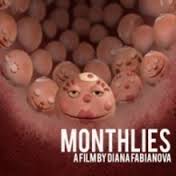 It's finally released! You can watch it for free by clicking here (although you are free to make a donation) Monthlies is a coming of age story of girls that are about to face a new period of their lives. Along with them the young spectator explores the colorful female world hidden behind the everyday reality. What starts as innocent curiosity turns into a witty and emotional trip of exploring the female body and new range of emotions. The documentary offers useful information about the menstrual cycle as well as the emotional changes that are often part of it. With humor and sensitivity it discloses the history of menstruation, misbeliefs, prejudices and the rules of “menstrual etiquette”, that still persist not only in remote parts of the world but also in our modern society. The 28 minutes version is intended for young audience. The main characters are 11-16 year old girls. We are accompanied with their stories throughout the film. The narrative structure is given by Helena Maslova (a gynecologist) whose knowledge and recommendations are interwoven into the storyline. |
Author
-Janoel Liddy is passionate about girls and women recognizing and acting on their needs to lead a satisfying life. She teaches puberty and wellbeing to girls and boys in schools, facilitates workshops and retreats and works with groups in TAFE, university and community organisations in training and events. She is a mother of two with her partner of over two decades and dances, cooks, reads and writes when she can and must. Categories
All
Archives
April 2018
|
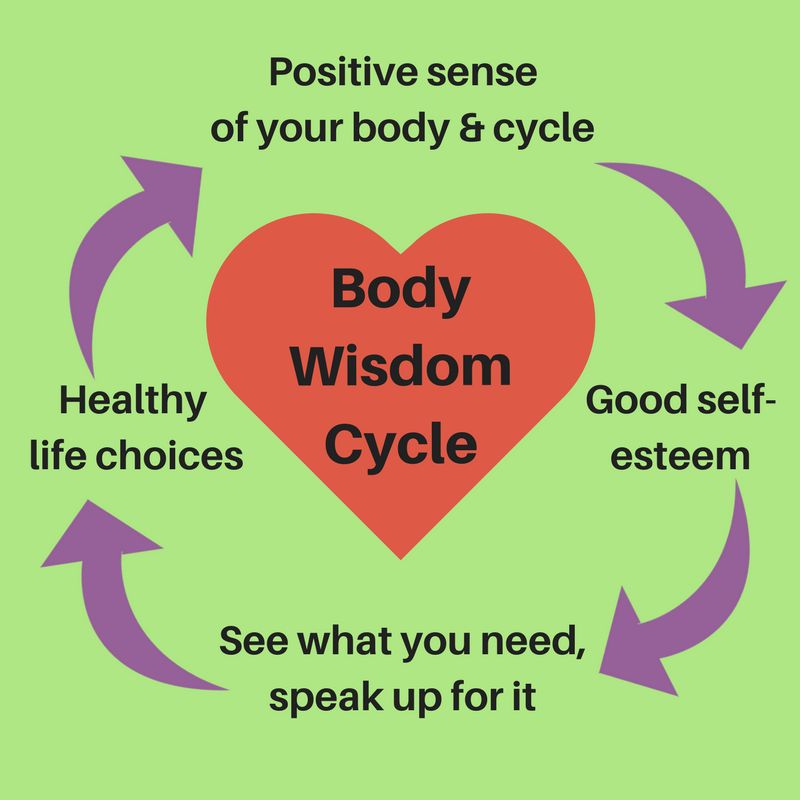
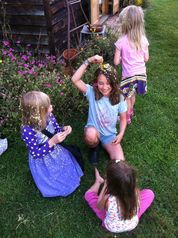
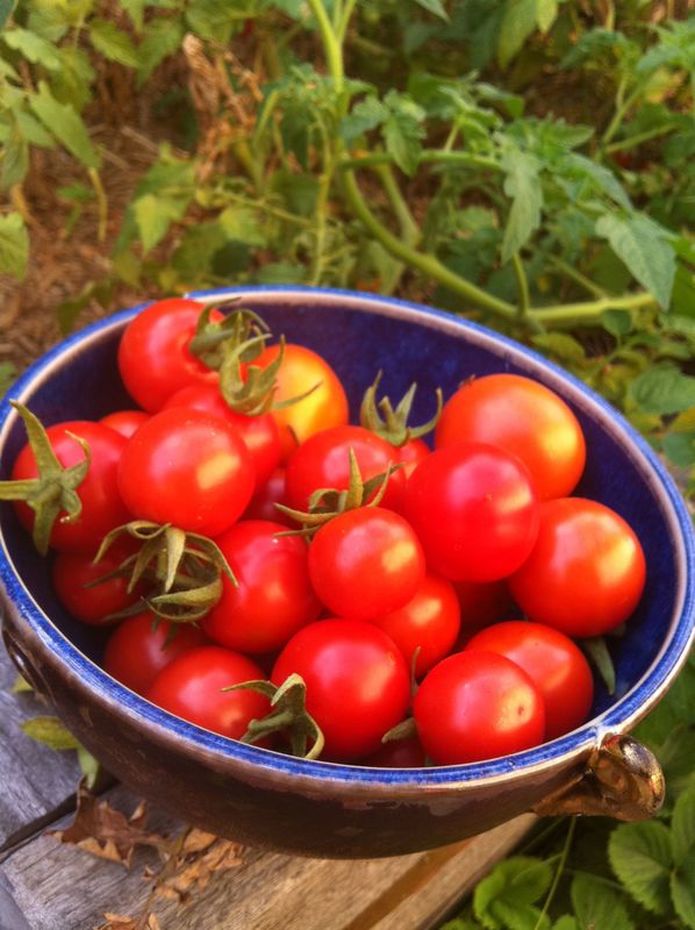
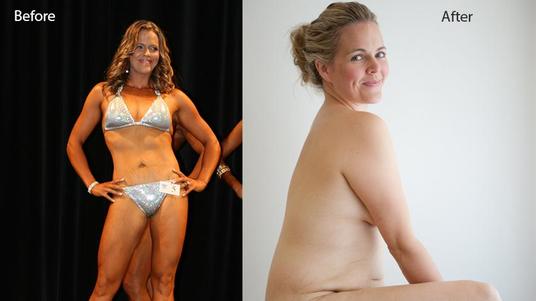

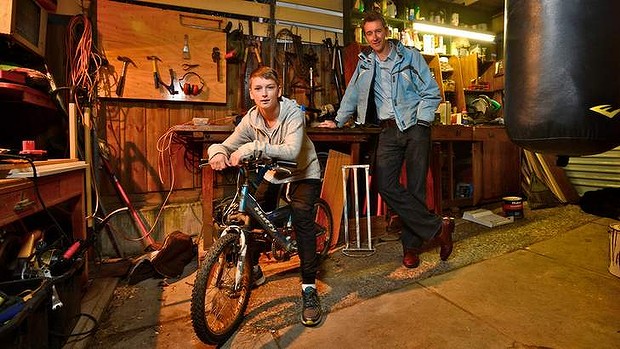
 RSS Feed
RSS Feed